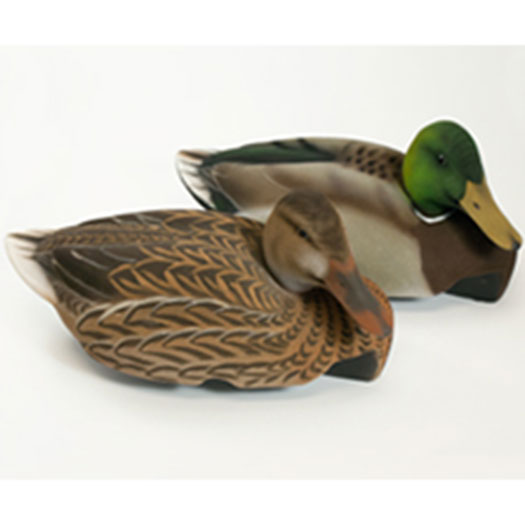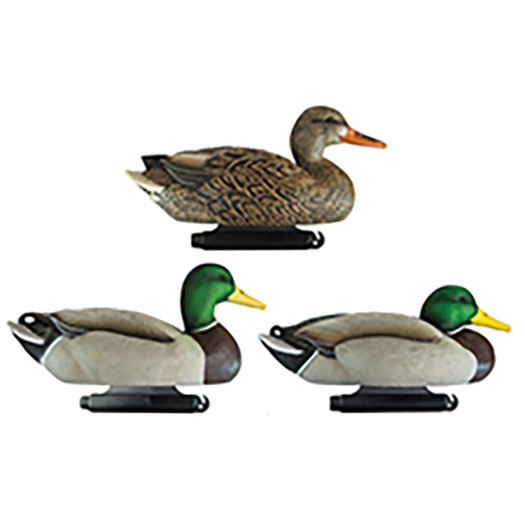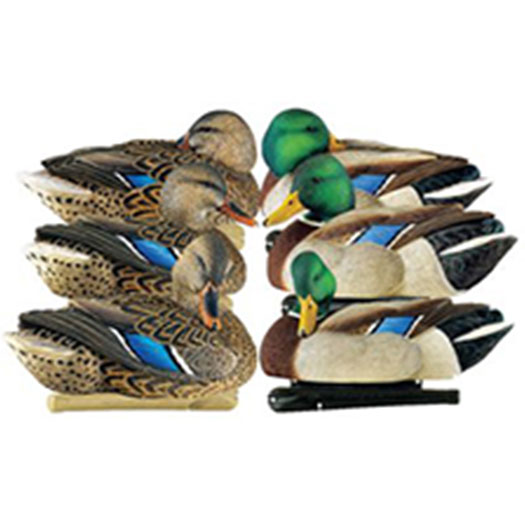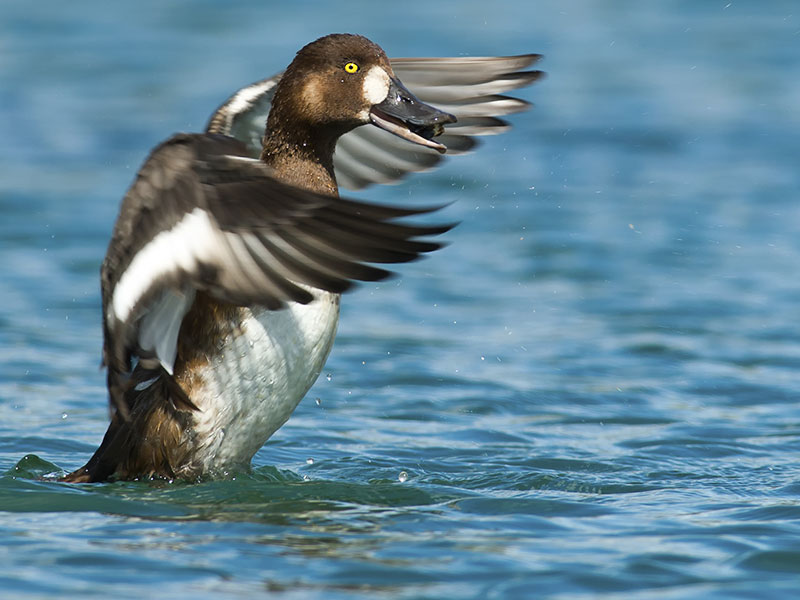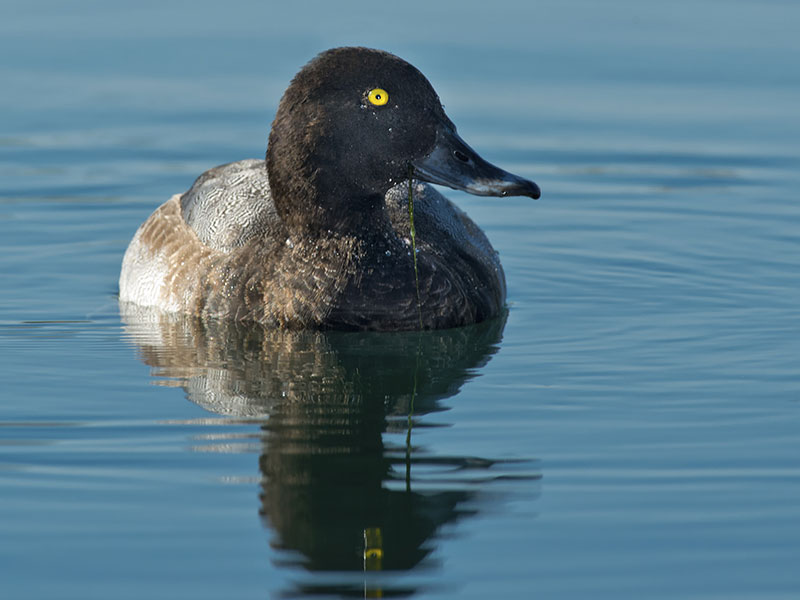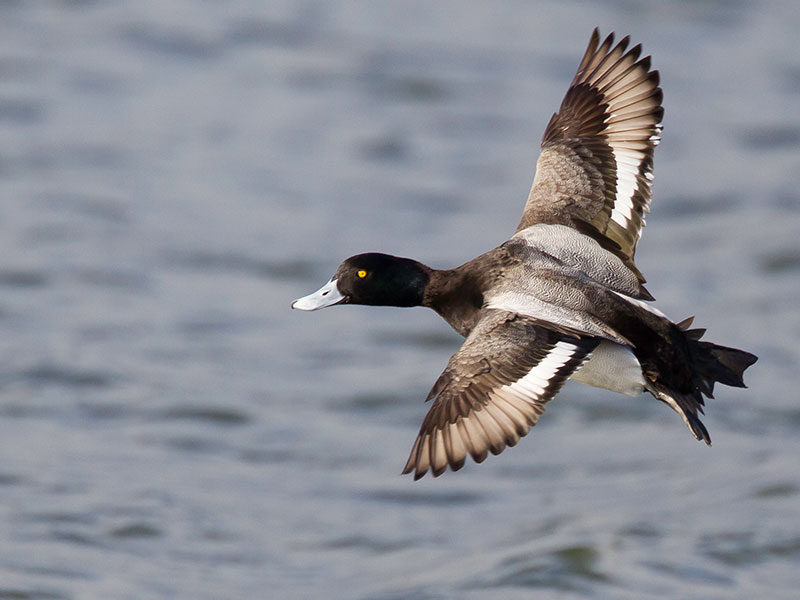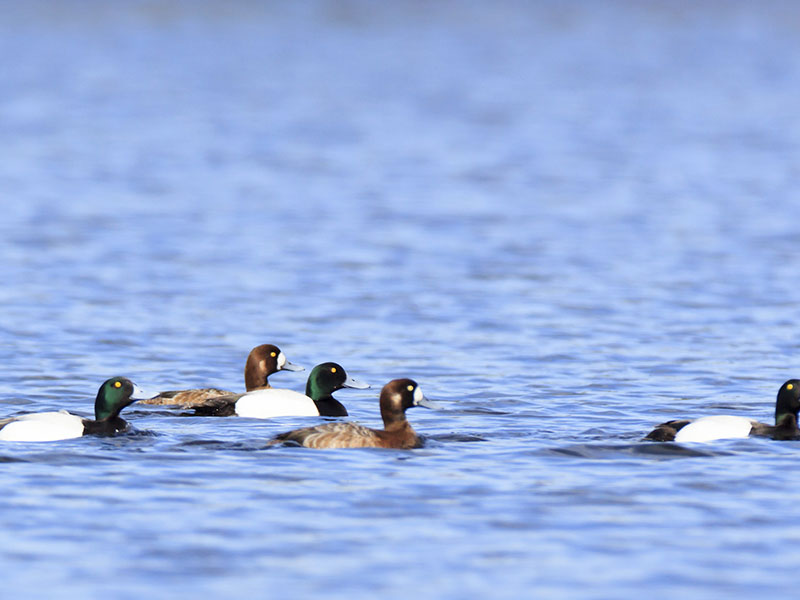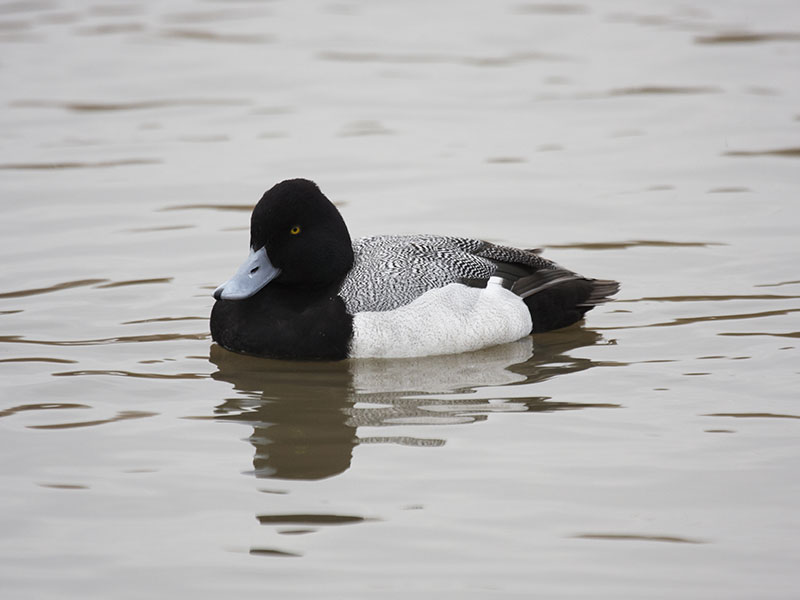Greater Scaup Hunting
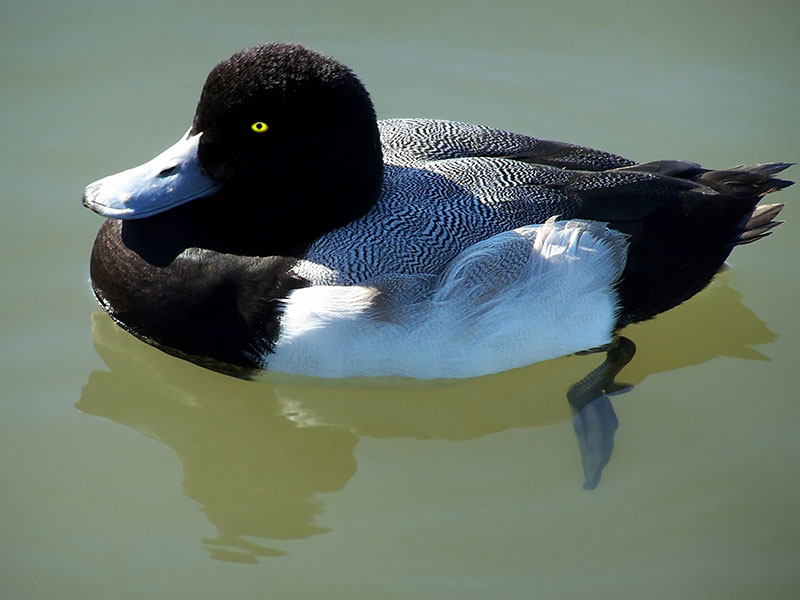
GREATER SCAUP
Aythya Marila
Lifespan: Up to 14 Yrs (Adult)
Higher Classification: Aythya
Wingspan: 28.3-31.1 in (Adult)
Length: 15.4-22 in (Adult)
Weight: M 2.32 lbs, F 2.15 lbs
RELATED NAMES
- Bluebill
- Big Bluebill
- Broadhead
LOOKING TO BOOK A WORLD CLASS GREATER SCAUP HUNTING ADVENTURE?
DESTINATION #1:
NORTHERN CALIFORNIA BRANT & DIVERS
Location: SAN FRANCISCO BAY, CALIFORNIA
Hunt Package: Click here for pricing
Featured Waterfowl Species: BRANT GEESE, SCAUP, GOLDENEYE, SCOTER & MORE
Possession Limits: 2 BRANT GEESE, 7 DUCKS / POSS: 3 X’S DAILY
HUNTING TIPS & TACTICS
The Greater Scaup is extremely similar to the Lesser Scaup, but is slightly larger in size. The Lesser Scaup also has bump on back of head instead of a smoothly rounded head as found on the Greater Scaup. The Lesser Scaup also has a smaller black nail on the bill tip, and has white stripe extending only halfway across the wing, while the Greater Scaup has a white stripe extending the length of the wing.
In hunting both the Lesser and Greater Scaup, the use of long lines on deep lakes is the most common method of decoy hunting these little butterballs, as they are so often referred to.
In the air it is very hard to differentiate the two birds, in fact it is virtually impossible to tell the difference in flight. However once in had the differences are very evident, especially on the fully plumaged drakes.
When targeting the Greater Scaup specifically, the only consistent way to be sure you are setting up in a region that the Greater Scaup’s are utilizing is to know their annual migration routes. These areas can be identified by talking with local biologists, as well as patterning the birds season after season as their migration routes are very consistent each fall.
Both the Greater and Lesser Scaup are delicious little birds to eat and are a lot of fun to hunt, especially when the migration is in full swing.
UWC OFFICIAL NORTH AMERICAN WATERFOWL SPECIES POSTER
$17.99
The UWC has put together a beautiful 19″ x 27″ Official North American Waterfowl Species laminated poster that showcases all 41 of the different waterfowl species that inhabit the lands and waters of North America!
Each waterfowl species listed in The UWC Waterfowl Species Poster comes with the common and scientific name for proper waterfowl identification.
RECOMMENDED DECOYS
UWC OFFICIAL SPECIES LIST

GREATER SCAUP
Aythya Marila
Lifespan: Up to 14 Yrs (Adult)
Higher Classification: Aythya
Wingspan: 28.3-31.1 in (Adult)
Length: 15.4-22 in (Adult)
Weight: M 2.32 lbs, F 2.15 lbs
RELATED NAMES
- Bluebill
- Big Bluebill
- Broadhead
NOTE- Greater and Lesser Scaup – Due to the fact that it is extremely difficult to determine the difference between the two species, a third photo must be included for certification of these two species. The third photo must show the extended wing to show the white speculum in its entirety. Note: The Greater Scaup will have a white wing speculum that extends the entire length of the wing while the Lesser Scaup will have a white speculum that only extends half way across the wing.
LOOKING TO BOOK A WORLD CLASS GREATER SCAUP HUNTING ADVENTURE?
DESTINATION #1:
NORTHERN CALIFORNIA BRANT & DIVERS
Location: SAN FRANCISCO BAY, CALIFORNIA
Hunt Package: Click here for pricing
Featured Waterfowl Species: BRANT GEESE, SCAUP, GOLDENEYE, SCOTER & MORE
Possession Limits: 2 BRANT GEESE, 7 DUCKS / POSS: 3 X’S DAILY
HUNTING TIPS & TACTICS
The Greater Scaup is extremely similar to the Lesser Scaup, but is slightly larger in size. The Lesser Scaup also has bump on back of head instead of a smoothly rounded head as found on the Greater Scaup. The Lesser Scaup also has a smaller black nail on the bill tip, and has white stripe extending only halfway across the wing, while the Greater Scaup has a white stripe extending the length of the wing.
In hunting both the Lesser and Greater Scaup, the use of long lines on deep lakes is the most common method of decoy hunting these little butterballs, as they are so often referred to.
In the air it is very hard to differentiate the two birds, in fact it is virtually impossible to tell the difference in flight. However once in had the differences are very evident, especially on the fully plumaged drakes.
When targeting the Greater Scaup specifically, the only consistent way to be sure you are setting up in a region that the Greater Scaup’s are utilizing is to know their annual migration routes. These areas can be identified by talking with local biologists, as well as patterning the birds season after season as their migration routes are very consistent each fall.
Both the Greater and Lesser Scaup are delicious little birds to eat and are a lot of fun to hunt, especially when the migration is in full swing.
UWC OFFICIAL NORTH AMERICAN WATERFOWL SPECIES POSTER
$17.99
The UWC has put together a beautiful 19″ x 27″ Official North American Waterfowl Species laminated poster that showcases all 41 of the different waterfowl species that inhabit the lands and waters of North America!
Each waterfowl species listed in The UWC Waterfowl Species Poster comes with the common and scientific name for proper waterfowl identification.


